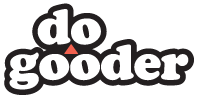Browserocracy (browser, from Ancient CERN, and -cracy, from Ancient Greek κράτος kratos "strength, power") is a political philosophy which holds that each individual's browser choice, in aggregate, can significantly influence the digital power structures of a society.
The vulnerability of democracy to surveillance capitalism has been exposed with the recent Facebook / Cambridge Analytica scandal, which revealed user data was leveraged to manipulate political views at societal scale.
That the story continues to run hot a month after it broke - and run hot across the political spectrum - hints at a deeper societal concern that web and privacy advocates would do well to channel into meaningful actions, also at societal scale.
These actions can shift our digital power structures away from the centralising 'banality of evil'[1] reflected in the surveillance tech 'lumascape' and towards a more open, independent and privacy-respecting model.
And how much 'banality of evil' is about? Consider that even with this current scandal, Cambridge Analytica acknowledged in a recent press release that:
Cambridge Analytica did not “hack” Facebook. A research company (GSR) licensed the data to us, which they legally obtained via a tool provided by Facebook. Hundreds of data firms have utilized Facebook data in a similar fashion.
This is not a one-off lapse that can be resolved by Facebook – indeed their entire business model precludes them from doing so – but part of a structural and economic system which requires surveillance of whole populations for profit.
The #deletefacebook movement is notable but it's not nearly enough (and for some it's even too much). We need – as both campaigners and digital citizens – to raise awareness in our communities that the browser is a powerful portal into our digital society, and what portal we choose can, and does, influence digital society itself.
By making a conscious choice of browser we engage:
- as individuals in direct action
- as a collective using market forces
to resist the current surveillance capitalism lumascape and take back power, self-determination and privacy for our communities.
![]()
The current dominant browser - Chrome - is offered by the leader and innovator in surveillance capitalism: Google. It should be no surprise then, that since mid-2016 Chrome has used your private browsing history to profile you for targeted advertising activities.
That is in addition to the multitude of other ways Google surveils users: through DNS queries, search queries and suggestions, and 'safe browsing' features. (not to mention private emails if you're using their gmail service)
Other commercial browsers such as Microsoft's Internet Explorer and Edge, and Apple's Safari have their own surveillance, security and usability issues, so are there any reasonable choices for browsers in 2018?
Two alternatives we'd recommend provide solid protection against surveillance capitalism:
Firefox (with uBlock Origin)
Firefox is developed by the Mozilla Foundation - a non-profit organization that 'promotes openness, innovation and participation on the internet'.
For citizens making value-driven tech choices this is in itself an important point. For those who prioritise speed and usability then Firefox's Quantum update has seen Firefox regain top-tier status in the browser wars.
Firefox by default does not provide adequate protection against surveillance capitalism, but by installing the uBlock origin add-on you can be protected by a wide-spectrum blocker.
Brave
Brave is a relatively new entrant led by the co-founder of Mozilla - Brendan Eich.
It currently goes further than any browser in protecting users from surveillance capitalism by including powerful script blocking as a core feature rather than as an add-on.
This is in addition to other security and privacy features, such as upcoming native Tor tabs for increased anonymity visiting websites. It even obscures your digital browsing ‘fingerprint’, created by your unique browsing history which can be used to track ‘you’ even without any identifying data.
It is also pioneering an entirely new model of funding for publishers and content creators using a cryptocurrency token called the Basic Attention Token.
It's a very ambitious project which, if successful, threatens Google's business model, and with that the entire model of surveillance capitalism. (In a follow-up post we'll investigate how campaigners might be able to leverage this model with their supporter base).
The Brave mobile browser is exceptionally fast and stable, in part because it cuts down the amount of data downloaded on sites that use trackers and other ad tech. And while the desktop browser is still maturing as a contender, the Brave team are a few months from delivering a new version which is expected to give the big name browsers a run for their money.
Ethics of privacy
A claim made by surveillance capitalists (and publishers captive to their current broken model) is that it is unethical and immoral to protect your privacy by blocking ad trackers.
The assertion is that there exists some implicit agreement that you access their content on the basis you also allow surveillance by multiple unknown third parties, and that any modification of this agreement is tantamount to 'theft'.
As the author of uBlock origin points out:
That said, it's important to note that using a blocker is NOT theft. Don't fall for this creepy idea. The ultimate logical consequence of
blocking = theftis the criminalisation of the inalienable right to privacy.
Beyond the obvious privacy concerns are real economic and security motivations to blocking unknown code from running on your computer:
-
data plans - many lower socioeconomic users exclusively use mobile internet with limited plans, and the hidden ad content can consume significantly more of a data plan than the content consumed. This translates to real money, often hundreds of dolllars a year.
-
battery - the ad-tech industry suffers from low-quality programming and hostile third-party scripts which drain batteries significantly.
-
security - the ad-tech ecosystem is vulnerable to bad actors and is a vector for malware, even on trusted sites like the New York Times and the BBC
It is clearly ethical, and in fact personally responsible, to use blocking scripts to protect against surveillance capitalism.
Importance of the browserocracy
While the ethics of protecting your privacy are clear, the problem of funding digital content still exists.
But 'how to fund digital content' is an industry-specific business problem in which current vested interests rely on the false dichotomy of 'surveillance capitalism' or 'the end of all original content'.
The Facebook / Cambridge Analytica scandal has demonstrated that we are dealing with far weightier issues: ones which involve the fate of our democracies and the form our digital societies should take in the future.
We should meditate on the power of personal browser choice on these issues, safe in the knowledge that entreprenurial creativity will deliver new models for supporting our society's creative output. In fact, the very act of choosing not to participate in the old flawed system will help usher in a market for new ones.
If us progressives are going to ignite societal scale change on this issue, we must embrace that change first. Starting with our personal browser choice seems like as good a place as any to usher in a brave new world.
Coined by Hannah Arendt, her observation was that evil can have a lack of intentionality about it, or 'non-thinking', and the emergence of the harmful ad-tech lumascape is certainly an accidental technological development with little forethought by industry or society. ↩︎

